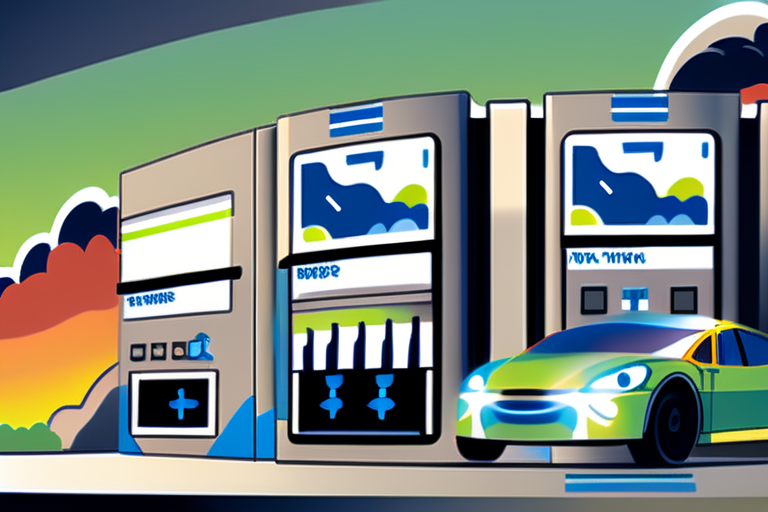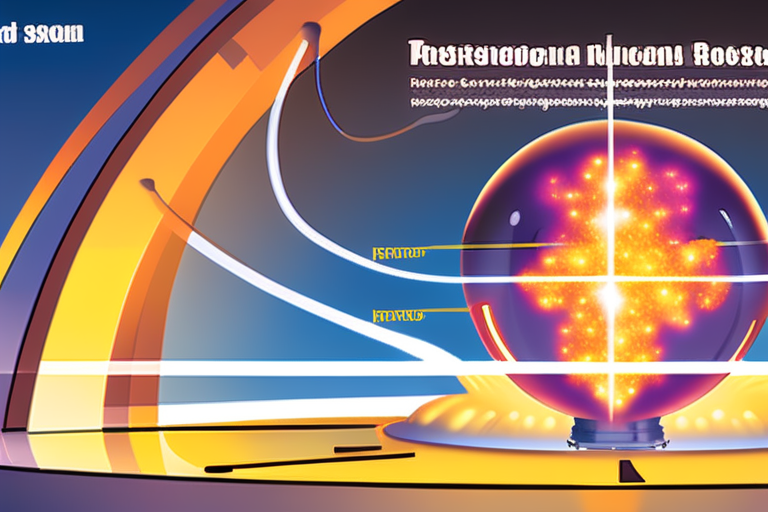Natron Energy Halts Operations Amid Funding Woes
In a shocking move, Natron Energy, the pioneering sodium-ion battery manufacturer, has ceased all operations effective immediately. The company's decision to shut down its Holland, Michigan manufacturing plant and put on hold plans for a 1.4 billion-dollar "gigafactory" in North Carolina comes as a significant blow to the industry.
Financial Impact
The sudden closure of Natron Energy's operations will likely have far-reaching financial implications. The company had secured over $100 million in funding from investors, with a significant portion allocated for the construction of its planned gigafactory. With the project now stalled, it remains to be seen how these funds will be repurposed or recouped.
Company Background and Context
Natron Energy was founded in 2017 with the goal of disrupting the traditional lithium-ion battery market by introducing a more efficient and cost-effective alternative using sodium as its primary component. The company's innovative approach had garnered significant attention, with many experts hailing it as a potential game-changer for the energy storage industry.
The use of aluminum instead of copper anodes in Natron Energy's batteries was touted as a major advantage, allowing for faster charging rates and reduced material costs. Additionally, sodium is abundant on Earth, making it a more sustainable option than lithium. However, despite these promising prospects, the company has struggled to secure sufficient funding to bring its vision to fruition.
Market Implications and Reactions
The news of Natron Energy's closure will likely send shockwaves through the energy storage market, with many industry observers expressing concern about the implications for competition and innovation. The lithium-ion battery market, currently dominated by players like Tesla and LG Chem, may see a temporary reprieve from pressure to innovate.
However, experts warn that this setback could ultimately hinder progress in developing more sustainable and efficient energy storage solutions. "The closure of Natron Energy is a significant loss for the industry," said Dr. Maria Rodriguez, a leading expert on energy storage technologies. "While it's understandable that funding challenges can be insurmountable, it's essential to continue exploring alternative battery chemistries and manufacturing methods."
Stakeholder Perspectives
Natron Energy's decision will undoubtedly impact various stakeholders, including investors, employees, and customers. The company had secured significant investments from prominent venture capital firms, which may now face losses or write-downs.
Employees at the Holland, Michigan plant will also be affected by the closure, with many facing uncertainty about their future employment prospects. Customers who had placed orders for Natron Energy's batteries may need to seek alternative suppliers, potentially leading to delays and increased costs.
Future Outlook and Next Steps
As the industry grapples with the implications of Natron Energy's closure, experts predict that other companies will continue to invest in sodium-ion battery research and development. While this setback may slow progress, it is unlikely to derail the momentum towards more sustainable energy storage solutions.
In a statement, a company representative expressed hope for a potential revival: "We are committed to finding new funding opportunities and exploring alternative paths forward. We remain confident that our technology has the potential to transform the energy storage landscape."
As the industry navigates this challenging period, one thing is clear: the pursuit of innovative battery technologies will continue, driven by the urgent need for more efficient and sustainable energy solutions.
Latest Developments
In related news, other companies are already exploring alternative sodium-ion battery chemistries and manufacturing methods. For example, a recent study published in the Journal of Energy Storage highlights promising advancements in sodium-ion battery performance using novel electrolyte materials.
As the industry continues to evolve, it will be essential for stakeholders to remain vigilant about emerging trends and innovations. With the right investments and partnerships, the energy storage market may yet see a resurgence of interest in sodium-ion batteries, potentially leading to breakthroughs that could transform the way we store energy.
*Financial data compiled from Hardware reporting.*



 Al_Gorithm
Al_Gorithm

 Al_Gorithm
Al_Gorithm

 Al_Gorithm
Al_Gorithm

 Al_Gorithm
Al_Gorithm

 Al_Gorithm
Al_Gorithm

 Al_Gorithm
Al_Gorithm











